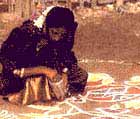 |
| a home away from home |
| HOME FEEDBACK TELL A FRIEND WEB SITE DESIGN CAREER WITH US CONTACT US |
![]() Festivals
Festivals
![]() Durga Puja
Durga Puja
![]() Associations
Associations
![]() Learn Bangla
Learn Bangla
![]() Beng. Marriage
Beng. Marriage
![]() Art & Craft
Art & Craft
![]() Great Indians
Great Indians
![]() Beauty Care
Beauty Care
![]() Recipe
Recipe
![]() Astrology
Astrology
![]() Beng. Section
Beng. Section
![]() Bengal
Bengal
![]() Calcutta
Calcutta
![]() Beng. Calendar
Beng. Calendar
![]() Wallpapers
Wallpapers
![]() Movie
Movie
![]() Music
Music
![]() E-Card
E-Card
![]() Shopping
Shopping
![]() E-Puja Room
E-Puja Room
![]() News
News
![]() E-mail
E-mail
![]() Month's Events
Month's Events
![]() Weather
Weather
![]() Chat
Chat
![]() Travel
Travel
![]() Join Us
Join Us
![]() Advertise
Advertise
![]() Website links
Website links
![]() Link to us
Link to us
![]() Guest Corner
Guest Corner
![]() Services
Services
![]() WebSite Design
WebSite Design

Pongal is a harvest festival and a thanks giving festival also. Through it the Sun god who is the source of our life is worshipped and thanked. Though Pongal is continued generally for the four days long but in some household it is celebrated for only the three days. This is followed according to the solar calendar, that’s why the date never change and it starts on 13th January of every
year. The day denotes the starting of Surya’s north journey that is ‘Uttarayan’. January is considered is the most auspicious month as it is the ending point of the traditional farming season. Cutting the crops before this time is strictly prohibited. According to the Hindu mythology the month ‘Thai’, or January, will usher a new fortune in everybody’s life. And ‘Thai’ is also considered the starting season of marriage in Tamilnadu. This is the time to dismiss the old and to welcome the new. New dresses, new furniture, new decorations are the heritage of Pongal. Both in villages and towns everyone collects that old items that have outlived their use, such as mats, rugs, files and clothes, and burn them in a bonfire right in the count yard or open space. Everyone enjoys the warmth of the fire as the time is winter. A delicious lunch is also taken on this day. But this feast is strictly for the near and dear ones, no other outsiders are permitted on this day. Several dishes are prepared, for instance, sweet dish like ‘puli’ and salty dish like ‘vadai’ and different types of rice. Rangoli is the part and parcel of Pongal. During the four-day festival, different varieties of Rangoli (known as kolam) are drawn in front of the houses early in the morning with different colours and with the vermilion. This inspires the creativity and helps to develop the sense of beauty. Everyone admires the new acquisitions and an atmosphere of gaiety and happiness prevails. But there are some differences between the rituals of the Brahmans and with the other castes.
The festivities begin with `Bhogi pandigai’ on January 13 can be considered as the prelude or the opening ceremony to the celebrations that follow. This day is dedicated to Lord `Indra', the God of Rains, in expectation of lots of rains. The next day is the `Pongal' day, which is celebrated by the prayers to `Surya'. The ‘arti’ is performed to the sun god amid chanting of Sanskrit ‘slokas’ in praise of the ‘sustainer of life’. A ‘thali’ or a metal plate is used in which the sun can be viewed. It is considered the day of a new beginning and people go for joyful celebrations. As a mark of respect to the cattle, the farmer's dumb friends, who help the farmers in farming this day they are washed and decorated. The third day of Pongal festival is celebrated as `Maattu Pongal'. In Tamil ‘maatu’ (or maadu) means cow or bull which represents prosperity. On this day Lord Ganesh and Goddess Parvati are also worshipped. It is also called ‘Kanu Pongal’ which is absolutely similar to the Rakhsha bandhan or Bhai dooj. Women pray for their brothers on this day. `Kaanum Pongal' is the end of the four-day celebrations. It is the time for relaxation and it is believed to be ‘karinaal’ or inauspicious. This day is also called ‘kanyapongal’.
Though mainly Tamil people organize Pongal, still it is celebrated by all the Hindus throughout the whole India, but not in the name of Pongal but according to the regional names. It is called Makar Sankranti in the North, Lohri in Punjab, Bhogali Bihu in Assam and Bhogi of Andhra Pradesh. Even though it is the rural festival but now it is celebrated by all the communities today. So this festival fosters a feeling unity and a sense of brotherhood and togetherness. And now it is not confined within a definite family or a definite community; it spread all over the India.
GREAT INDIANS || BENGALI SECTION || BENGALI MARRIAGE || BABY'S NAME || WALLPAPER || BENGAL || WEATHER || TRAVEL
MOBILE WALLPAPER || E-CARD || MOVIE || WEBSITE LINKS || ASSOCIATIONS || SHOPPING || ASTROLOGY || MUSIC || BEAUTY CARE
TIGER || NEWS || GUEST CORNER || FEEDBACK || LINK TO US || FOR ADVERTISING || SERVICES || CONTACT || BENGALI CALENDAR
Graphics, Sound or content copied or produced in part or whole in any media will be illegal.
Persons or websites caught using our material will be penalized.
Privacy Statement || Copyright
Copyright ©1999-2014 BANGALINET.COM